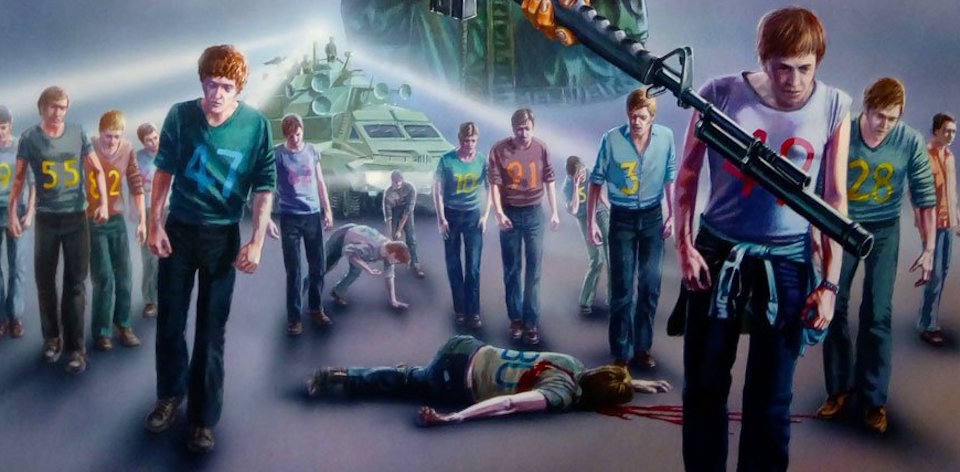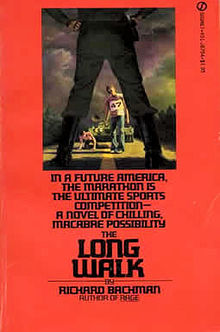Welcome to the feature column that explores a decent number of Stephen King’s books in the order they were published! (More or less!)
Having read dozens of King novels over the last few years, this current project offered the chance to go back and read some of his earliest works. While The Long Walk wasn’t published until 1979 under the Bachman pseudonym, it was one of the first novels that King began writing in the mid to late 1960s. As with the other Bachman books, it provided the author a certain level of distance to showcase an even darker side to his persona.
The premise is simplicity itself. In a dystopian America ruled over by an unruly dictator (*cough*), a hundred contestants compete in the titular walking race with the last man standing declare the winner. To say more would be criminal, as one of the strengths of this novel is watching the world unfold as the miles roll on. The teenage Garraty is ostensibly the main protagonist of the book, with the Constant Reader sharing a narrative proximity to him, but his fellow Long Walkers get a fair amount of page time as well.
While King/Bachman would experience even more success with another dystopian reality show/competition (The Running Man), here we see King at his most raw. As hungry as the main character is at times, Bachman is relentless. This book is as single-minded as they come, and the Reader is dragged through the streets and made to be an active participant rather than a mere spectator.

As such, a funny thing happens on the way to the end of this particular walk. The plodding nature of the narrative becomes rhythmic, like a slow drum beat in the back of your mind. The deaths, shocks, and other revelations become commonplace, which is exactly where King wants you. The madness becomes infectious: for some, this will be frustrating. For others, the last 40% of the book will tick by rapidly like miles on a speedometer.
Decades ahead of The Hunger Games and our fascination with ‘reality’ and survival television, King taps into both our voyeuristic natures and the wish-fulfilment fantasies that game shows are geared towards. The most disturbing footnote is learning about the existence of “real-life adaptation” Fotrally, an annual walking event held in Sweden since 2009. Hopefully contestants aren’t eliminated in the same way are they are here.





